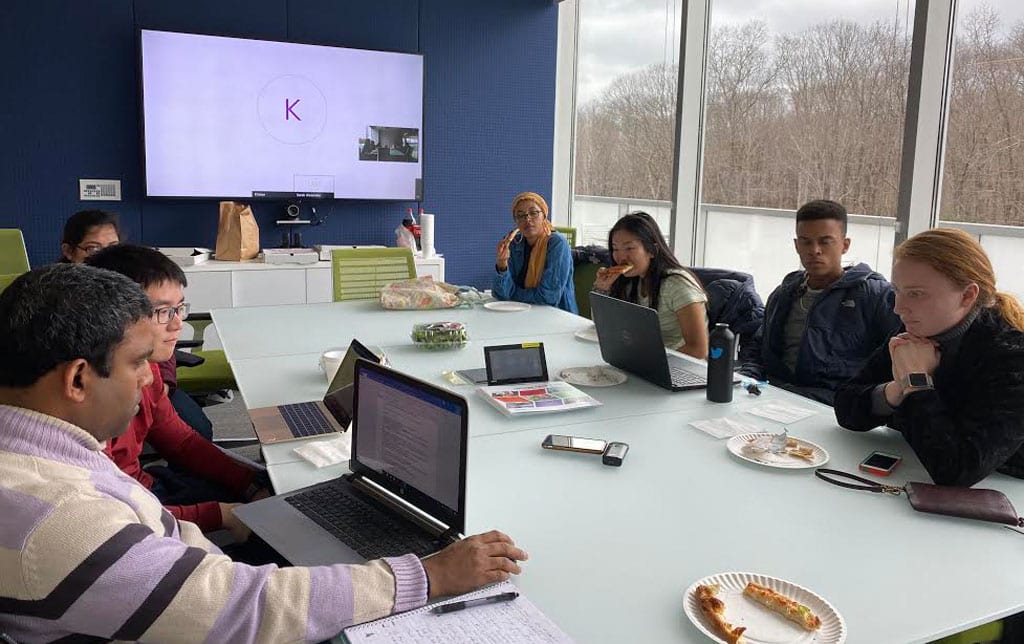Graduate and undergraduate students met on January 28th, 2020 to kickoff the spring Brownbag session series. The meeting encompassed a vibrant conversation with Ezana Atsbeha, UConn PhD student from Sociology Department, who shared information from the field, such as unexpected rain and the implications of that on the farmers with whom he regularly speaks. It was interesting to know that last year, it rained more than normal even in the start of the dry season (November and December) which partially stopped the early reservoir release operations. This brought a sense of positivity to the farmers in general, since the soil conditions were wet in the dry season without involving much reservoir irrigation.
There were however, cases of some Maze crop damage, but whether they tie to the structural damages in one of the main canal sections, or the irrigation loss, or something purely related to the decision of changing the mainstream seeds for the season, needs to be further investigated. Another important information was that this irrigation season, there has been some quaternary and tertiary canals which were not fed by irrigation or in other words, deprived from irrigation flow completely. This needs more investigation as well, but at this point it merely agrees with the groundwater model results produced by Fahad, which shows that in non-regulated case simulations (i.e. when all secondary canals are fed with their maximum capacity from the available main canal release) there are at least 2-3 command areas which do not receive much irrigation!
Unexpected rainfall peaked the interest of both sociologists and engineers alike in the room. Sarah Alexander, a University of Wisconsin CEE PhD student, engaged the group to discuss what would empower or catalyze a change in behavior, as the models require a link between knowledge dissemination and a change in behavior such as buying more/less/different seed. Genevieve Rigler inquired with Ezana about crop rotation and government programs for collective farming. Lastly, Ezana reported from the field that farmers were inquisitive about the forecast bulletin! The meeting ended with a light fare and as always, deep conversation. They will be meeting next month to discuss further.
